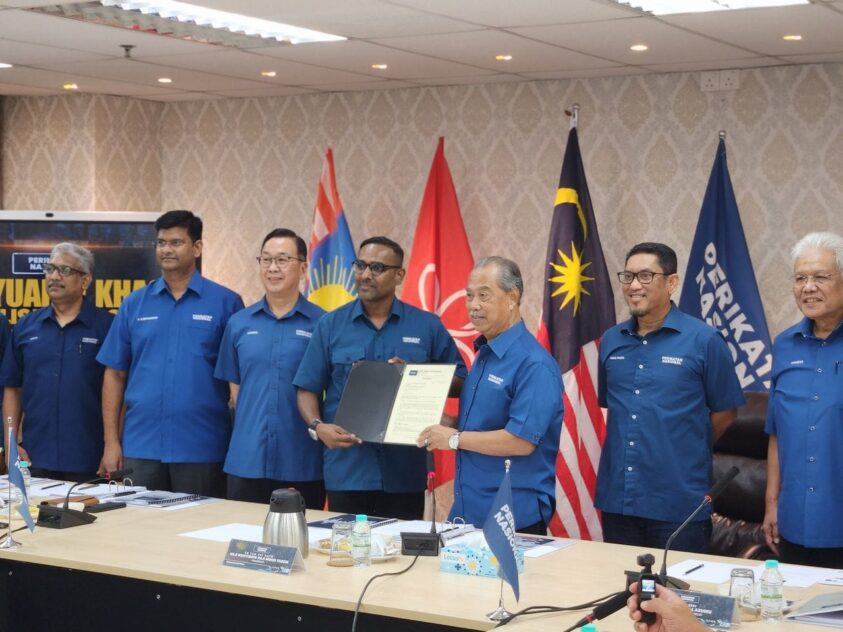STRENGTHENING greater socio-economic resilience, reforming strong and credible institutions as well as maintaining stable political system should be central to ‘Building Back Better Malaysia’.
It is important that various institutions and public policies needed to re-orientate, reset and refocus growth-inclusiveness-sustainable according to the changing circumstances and times.
Institutional reforms
Weak institutions and governance can impose significant economic and social costs. Corruption and misappropriation of public funds lead to more wastage and misallocation of resources towards unproductive activities.
A weak legal and rule of law regime undermines both domestic and foreign investors’ confidence, discourages investments and innovation, resulting in a decline in long-term economic growth.
Among the institutional reforms are the Parliamentary select committees on major public service appointments to determine the key appointments of four commissions.
They are the Elections Commissions (EC), Judicial Appointments Commission and Human Rights Commission (Suhakam) as well as the chief commissioner of the Malaysian Anti-Corruption Commission (MACC) and separating the Attorney General’s Office (AGO) which is the legal adviser for the executive body from the Public Prosecution Office (PPO).
The AGO-PPO initiative is a crucial step to shield the prosecutorial decision-making process from the political influence and the conflict of interest. Electoral system reforms to improve the procedures of elections should be conducted on a fair manner without biasness in favour of certain politicians and political parties.
Racial unity
Racial harmony, tolerance and understanding among a multi-racial society of great diversity which is the recipe for Malaysia’s success should be upheld at all costs to maintain the common space that we are now sharing.
What is most worrying is that polarisation which is increasingly permeating through our society is endangering inter-ethnic harmony, thus eroding our fabric of society in terms of social cohesiveness.
It is the Government’s priority to manage the balance of social cohesion. With every new generation, our racial harmony needs to be refreshed, reaffirmed, and reinforced.

The Government has to enact the Bill on National Harmony and Reconciliation Commission to affirm its seriousness to mitigate racial and religious sentiments in the country as well as to move the nation away from race and religious-based discrimination.
We have to undertake a review of all Federal and state legislation and policies in order to assess their compatibility with the right to equality while amending and abolishing (when necessary) existing laws, regulations, and policies that are in conflict or are incompatible with the right to equality.
The Government and political leaders must take a clear and unequivocal stand that Malaysia must remain a moderate and tolerant nation and all the powers of the law must be brought to bear on those who promote hatred and intolerance based on race and religion.
Economic reforms
The reform priorities to boost both growth and equal opportunities require radical and granular implementation for the well-being of all Malaysians and to achieve strong, sustainable, balanced and inclusive growth.
Discard affirmative action policies (except for the targeted needs and income-based policies, regardless of race and geographical). Going for growth guides policy makers where to focus their reform efforts.
Better public sector delivery and efficiency, rule of law and adequate, accessible infrastructure provision are equally important to save public resources, access markets and create conducive ecosystem for businesses to invest in innovation.
Enhance better investment climate through regulatory reforms. The Government’s role should be limited to setting and facilitating businesses and investors as well as enforcing fair rules of the game.
The Government should focus on removing barriers to the growth of domestic business and enterprises by complementing them with foreign direct investment (FDI).
Freer and healthy competition, deepen trade and services (through multilateral and bilateral trade agreements) and high-quality investment are essential for innovation, the diffusion of digital technologies and ultimately productivity growth and social inclusion.
The authorities and agencies at all levels (Federal, state and local authority) need to demonstrate leadership to actively facilitate investment through ease of doing business.
These include building better Government-business relationship to ease business pain points; build capacity to address information gaps that are prevalent in facilitating domestic investment; develop public-private partnerships as well as maintaining public-private sectors engagement so as to have proper business impact analysis before introducing new policies or regulations.
Education is key
It is equally important that the Government must ensure transparency, consistent and clear rules/regulations that limit administrative discretion to minimise unproductive rent seeking and corruption. We must persistently push zero tolerance for corruption which adds to hidden costs.
Education is the most crucial reform priority to make sure current and future generations have the skill set to find employment which would both boost productivity and give everyone the best chance for a fulfilling life.
The upgrading of software and hardware infrastructure, the quality of educationists and best practice teaching techniques and strategies to produce quality and adaptive graduates.
Growth has to be environmentally sustainable. Responding to the urgency of climate change and mounting environmental pressures, growth priorities must focus on green investment, ESG (environmental, social and growth), tackling air pollution, climate change and other key environmental problems that are part of a sustainable growth strategy.
Health reform is also critically needed to ensure sustainable and affordable national healthcare system given the aging community and growing costly chronic care needs are exerting considerable demand on health systems.
Lee Heng Guie is the executive director of the think-tank, Socio-Economic Research Centre (SERC).
The views expressed are solely of the author and do not necessarily reflect those of Focus Malaysia.










